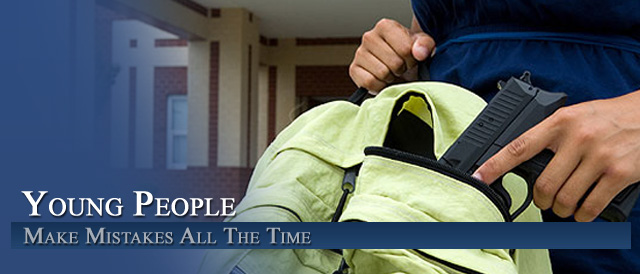
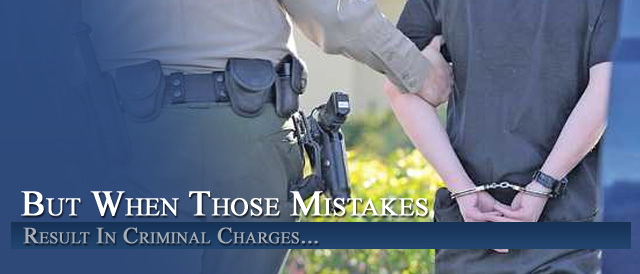
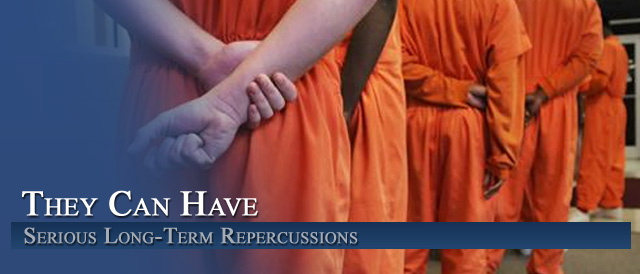
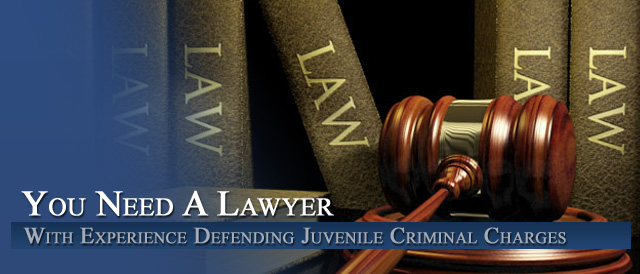
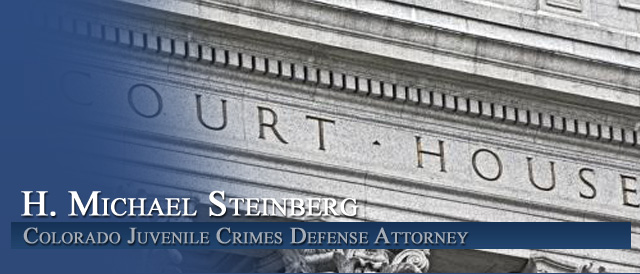
Colorado Criminal Law – Under 18-12-105 – How Concealed Does A Concealed Weapon Have To Be?
By H. Michael Steinberg Colorado Juvenile Crimes Criminal Defense Lawyer – Attorney
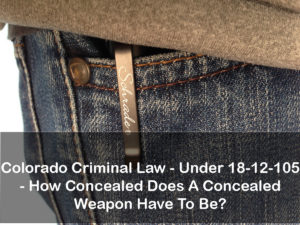 Colorado Criminal Law – Under18-12-105 How Concealed Does A Concealed Weapon Have To Be? – Under Colorado law – carrying a concealed weapon can act as a violation of certain Court orders such as a protection order. Understanding the intersection of the two laws is important to prevent new charges of Carrying A Concealed Weapon and Violation Of A Protection Order.
Colorado Criminal Law – Under18-12-105 How Concealed Does A Concealed Weapon Have To Be? – Under Colorado law – carrying a concealed weapon can act as a violation of certain Court orders such as a protection order. Understanding the intersection of the two laws is important to prevent new charges of Carrying A Concealed Weapon and Violation Of A Protection Order.
Understanding Colorado’s Concealed Weapons Law 18-12-105
It is an understatement to assert that Colorado’s concealed weapons law is confusing. Having said that, that confusion can lead to new arrests for a variety of new crimes which include protection order violations.
It is typical in many types of Colorado criminal cases, to have a blanket protection order which contains a provision “not to “possess or control a firearm or other weapon.”
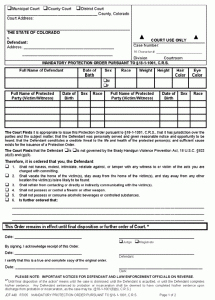
Colorado’s concealed weapons law appears straightforward on it’s face.
Here is the law as of 2017:
§ 18-12-105 Unlawfully Carrying A Concealed Weapon–Unlawful Possession of Weapons
(1) A person commits a class 2 misdemeanor if such person knowingly and unlawfully:
(a) Carries a knife concealed on or about his or her person; or
(b) Carries a firearm concealed on or about his or her person; or
(c) Without legal authority, carries, brings, or has in such person’s possession a firearm or any explosive, incendiary, or other dangerous device on the property of or within any building in which the chambers, galleries, or offices of the general assembly, or either house thereof, are located, or in which a legislative hearing or meeting is being or is to be conducted, or in which the official office of any member, officer, or employee
of the general assembly is located.
….
[HMS – What follows are the EXCEPTIONS or DEFENSES to the charge built right into the statute.](2) It shall not be an offense if the defendant was:
(a) A person in his or her own dwelling or place of business or on property owned or under his or her control at the time of the act of carrying; or
(b) A person in a private automobile or other private means of conveyance who carries a weapon for lawful protection of such person’s or another’s person or property while traveling; or
(c) A person who, at the time of carrying a concealed weapon, held a valid written permit to carry a concealed weapon issued pursuant to section 18-12-105.1, as it existed prior to its repeal, or, if the weapon involved was a handgun, held a valid permit to carry a concealed handgun or a temporary emergency permit issued pursuant to part 2 of this article; except that it shall be an offense under this section if the person was carrying a concealed handgun in violation of the provisions of section 18-12-214; or
(d) A peace officer, as described in section 16-2.5-101, C.R.S., when carrying a weapon in conformance with the policy of the employing agency as provided in section 16-2.5-101 (2), C.R.S.; or
…
(f) A United States probation officer or a United States pretrial services officer while on duty and serving in the state of Colorado under the authority of rules and regulations promulgated by the judicial conference of the United States.
To Summarize The “Built In” Defenses In The Statute Include:
If you study the statute above – you will see the most common defenses to the Colorado charge of carrying a concealed weapon actually “built into” the law itself – Sections (2) (a) – (f).
Summary – you can defend against this charge if you:
….were on your own property at the time of the alleged offense and the weapon was for the purpose of defending your home, person or property;
….were in a private motor vehicle and needed the weapon for the protection of property in the vehicle while travelling;
…hold a valid concealed carry permit at the time of the alleged offense and were following the rules;
.. are a peace officer complying with departmental regulations;
…are a federal probation or pretrial services officer complying with United States rules and regulation;
….were unaware that you were in possession of the weapon;
… possessed a knife a knife solely for a legitimate purposes such as hunting or fishing;
… possessed a knife with a blade that is less than 3 1/2 inches long;
A Colorado Protection Order Pitfall
Colorado protection orders can be found in criminal cases and in also in certain civil cases – such as Colorado Dissolution cases.
In criminal cases there is a typically a one-page printed form (above) that identifies “the protected person” and then states the Court’s specific “orders of protection.”
These orders of protection may include multiple “conditions” that, if committed, would violate the Court’s Order and will constitute the commission of a new crime.
Those conditions will almost always include that the Defendant shall not “harass, molest, intimidate, retaliate against, or tamper with” the protected person and that the Defendant “[s]hall not possess or control a firearm or other weapon.”
Here is the text of the law:
Colorado’s Violation Of A Protection Order Law (excerpted) 18-6-803.5(1)(a), C.R.S.
(1) A person commits the crime of violation of a protection order if, after the person has been personally served with a protection order that identifies the person as a restrained person or otherwise has acquired from the court or law enforcement personnel actual knowledge of the contents of a protection order that identifies the person as a restrained person, the person:
(a) Contacts, harasses, injures, intimidates, molests, threatens, or touches the protected person or protected property, including an animal, identified in the protection order or enters or remains on premises or comes within a specified distance of the protected person, protected property, including an animal, or premises or violates any other provision of the protection order to protect the protected person from imminent danger to life or health, and such conduct is prohibited by the protection order;
(b) Except as permitted pursuant to section 18-13-126(1)(b), hires, employs, or otherwise contracts with another person to locate or assist in the location of the protected person; or
(c) Violates a civil protection order issued pursuant to section 13-14-105.5, C.R.S., or pursuant to section 18-1-1001(9) by: (I) Possessing or attempting to purchase or receive a firearm or ammunition while the protection order is in effect; or (II) Failing to timely file a receipt or written statement with the court as described in section 13-14-105.5(9), C.R.S., or in section 18-1-1001(9)(i) or 18-6-801(8)(i).
A Protection Order is defined as:
“Protection order” means any order that prohibits the restrained person from contacting, harassing, injuring, intimidating, molesting, threatening, or touching any protected person or protected animal, or from entering or remaining on premises, or from coming within a specified distance of a protected person or protected animal or premises or any other provision to protect the protected person or protected animal from imminent danger to life or health, that is issued by a court of this state or a municipal court.
Next it’s important to understand the elements of the Colorado crime of Violation Of A Protection Order
 The Crime Of A Violation Of A Colorado Protection Order Broken Down Into It’s “Elements”
The Crime Of A Violation Of A Colorado Protection Order Broken Down Into It’s “Elements”
The “elements” of the crime of violation of a protection order (prohibited conduct) are:
1. That the defendant,
2. in the State of Colorado, at or about the date and place charged,
3. after having been personally served with a protection order that identified the defendant as a restrained person, or otherwise having acquired from the court or law enforcement personnel actual knowledge of the contents of a protection order that identified the defendant as a restrained person,
4. knowingly,
5. contacted, harassed, injured, intimidated, molested, threatened, or touched the protected person or protected property (including an animal) identified in the protection order; or entered or remained on premises or came within a specified distance of the protected person, protected property (including an animal), or premises; or violated any other provision of the protection order designed to protect the protected person from imminent danger to life or health; and
6. the defendant’s conduct was prohibited by the protection order.
When Does Carrying A Concealed Weapon Violate A Colorado Protection Order? – Understanding The Concept Of Concealment
Understanding the nature of terms in the statute such as “possession” and “concealment” is critical to understanding the intersection of these two laws – the Colorado crime of violation of protection order and the crime of carrying a concealed weapon.
An example – In a recent Colorado case a police officer stopped a young man and discovered that he was the subject to a Colorado Protection Order. The Protection Order provided, among other things, that the juvenile was not to “possess or control a firearm or other weapon.”
In this case, the police officer had the legal right to search the juvenile’s backpack and when he did – he found a knife with a five and one-half inch blade inside a sheath inside a zippered compartment. The juvenile was found to have committed both the crime of violating a protective order and the crime of unlawfully carrying a concealed weapon and was adjudicated a juvenile delinquent.
The primary issue in the case turned on whether the knife was concealed “on or about (the juvenile’s . . . person.” The juvenile’s argument – which must be well understood at this point – was that because the knife was in a sheath in an interior zippered compartment of his backpack, it was not readily accessible and therefore was not “on or about” his person.
The Court rejected that argument based on the following analysis:
First: It had to be established that the case involved an illegal “knife.”
As used in section 18-12-105(1)(a), a “knife” means “any dagger, dirk, knife, or stiletto with a blade over three and one-half inches in length, or any other dangerous instrument capable of inflicting cutting, stabbing, or tearing wounds, but does not include a hunting or fishing knife carried for sports use.” § 18-12-101(1)(f), C.R.S. 2016.
Second: It had to be established that the knife was “concealed on or about his person”
This is one of the more difficult issues in the case and bears closer analysis.
The defendant argued that because his knife was in a sheath in an interior zippered compartment of the backpack, it was not readily accessible and thus was not “on or about” his person.
The question then turned on what does “about the person” mean?
The law on this issue in Colorado is this – “about the person” means “sufficiently close to the person to be readily accessible for immediate use.”
“About” means “reasonably close to” according to the Merriam-Webster Collegiate Dictionary as used by the Court in the opinion. Therefore, the Court decided, “about” necessarily enlarges the area in which a weapon may be concealed, encompassing a space close to, even if not directly on, the person and it is a considerably more “comprehensive term”
The Court reasoned that since law used the term “about” rather than simply “on” the person, the the law was intended to reach weapons “concealed in such proximity to the person as to be convenient of access and within reach.”
In other cases Courts have held that weapons carried in purses, briefcases, or backpacks were being carried “on or about” the person and the fact that the juvenile, in this case, necessarily had to “shuffle through” the contents of the backpack to get to the knife did not impact the fact that it was “readily accessible.”
It is important here to understand that a weapon is concealed on your person if it is placed out of sight “so as not to be discernible or apparent by ordinary observation.” Therefore a partially concealed weapon is NOT concealed for purposes of 18-12-105 C.R.S. if a “casual observer would recognize it as a weapon.”
Third: The juvenile was carrying the concealed knife in his backpack unlawfully because he was doing so in violation of a Court protection order even if that order was unrelated to the case at hand.
Why did these facts support a violation of a Colorado protection order?
Since the juvenile in this case did nothing directed aimed at the protected person named in the protection order how could he be found guilty of a violation of the protection order which was entered in an unrelated case?
Here is the law – if you are aware of a protection order and you possess a concealed weapon, even if there is no evidence that possession of the knife was intended to harm the protected party, there will likely be sufficient evidence to establish that you may have committed the offense of Violation of a Protection Order as set out in Section 18-6- 803.5. (See law above).
The elements of Violation of a Protection Order uses the disjunctive “or” in section 18-6-803.5(1)(a) to multiply the ways in which the law can be violated..
Again the law reads
1. That the defendant,
2. in the State of Colorado, at or about the date and place charged,
3. after having been personally served with a protection order that identified the defendant as a restrained person, or otherwise having acquired from the court or law enforcement personnel actual knowledge of the contents of a protection order that identified the defendant as a restrained person,
4. knowingly,
“contacted, harassed, injured, intimidated, molested, threatened, or touched the protected person or protected property (including an animal) identified in the protection order; or entered or remained on premises or came within a specified distance of the protected person, protected property (including an animal), or premises; or violated any other provision of the protection order designed to protect the protected person from imminent danger to life or health;
6. the defendant’s conduct was prohibited by the protection order.
The law provides for alternative ways of committing the offense of violation of a protective order. By using the disjunctive “or” the law specifies alternative means of committing the crime and includes a prohibition that permits a violation of the law that does not require proof that the accused actually contacted the protected person.
Put another way, while the provision has to have been intended to protect the protected person, there is no additional requirement that the offender’s violation of the provision was itself “intended to cause imminent danger to the life or health” of the protected person.
The Penalties For The Crime of Unlawfully Carrying A Concealed Weapon In Colorado
Finally, it is important to understand the possible penalties for the crime of carrying a concealed weapon:
A first-time violation of Colorado’s concealed weapon law is a Colorado class 2 misdemeanor that can be punished by a fine of up to $1,000 and up to a year in jail.
A second or subsequent offense within 5 years is a Colorado class 5 felony. Penalties can run as high as three years in prison and a fine of up to $100,000.
Colorado Criminal Law – Under18-12-105 – How Concealed Does A Concealed Weapon Have To Be?
If you found any of the information I have provided on this web page article helpful please click my Plus+1 or the Share buttons for Twitter and Facebook below so that others may also find it.
The reader is admonished that Colorado criminal law, like criminal law in every state and at the Federal level, changes constantly. The article appearing above was accurate at the time it was drafted but it cannot account for changes occurring after it was uploaded.
If, after reading this article, you have questions about your case and would like to consider retaining our law firm, we invite you to contact us at the Steinberg Colorado Criminal Defense Law Firm – 303-627-7777.
Never stop fighting – never stop believing in yourself and your right to due process of law. You will not be alone in court, H. Michael will be at your side every step of the way – advocating for justice and the best possible result in your case. H. Michael Steinberg is passionate about criminal defense. His extensive knowledge and experience of Colorado Criminal Law gives him the edge you need to properly handle your case
 ABOUT THE AUTHOR: H. Michael Steinberg – Email The Author at:
ABOUT THE AUTHOR: H. Michael Steinberg – Email The Author at:
A Denver Colorado Criminal Defense Lawyer – or call his office at 303-627-7777 during business hours – or call his cell if you cannot wait and need his immediate assistance – please call 720-220-2277.
“A good criminal defense lawyer is someone who devotes themselves to their client’s case from beginning to end, always realizing that this case is the most important thing in that client’s life.”
You should be careful to make a responsible choice in selecting a Colorado Criminal Defense Lawyer. We encourage you to “vet” our firm. Over the last 35 plus years – by focusing ONLY on Colorado criminal law – H. Michael has had the necessary time to commit to the task of constantly updating himself on nearly every area of criminal law, to include Colorado criminal law and procedure and trial and courtroom practice.
Putting more than 40 years of Colorado criminal defense experience to work for you.
H. Michael works hard to get his clients the best possible results in and out of the courtroom. He has written, and continues to write, extensively on Colorado criminal law and he hopes this article helps you in some small way – Colorado Criminal Law – Under18-12-105 – How Concealed Does A Concealed Weapon Have To Be?
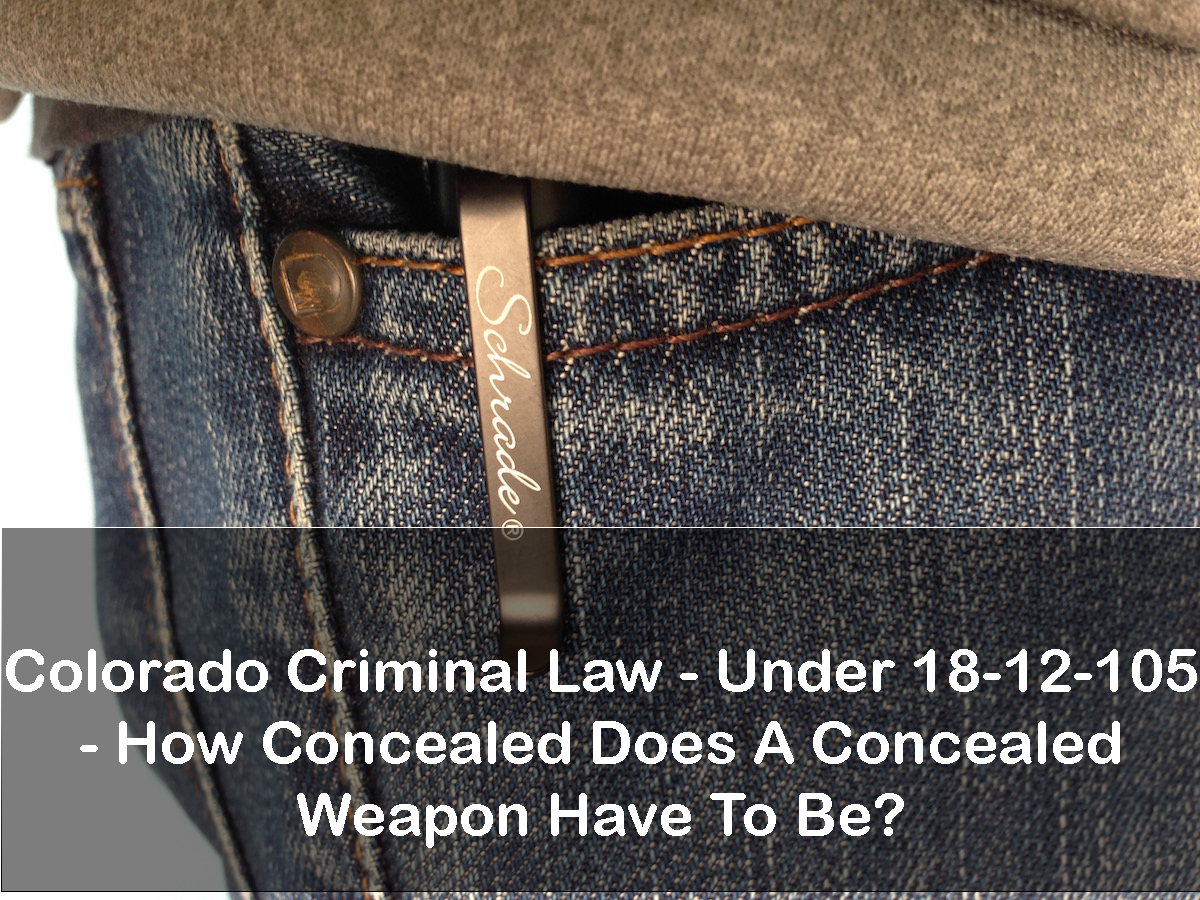
Other Articles of Interest:
- After Your Child Is Arrested in Colorado – Juvenile Criminal Screening And The Detention Hearing Part II Of II
- Colorado Juvenile Law – When Your Child Is Arrested – What To Do – A Guide For Parents
- Colorado Criminal Law – Understanding Searches Of Juveniles In Schools
- Colorado Juvenile Law – A List of Legal Terms To Help You – List II of II
- Probation – Terms – Release – Revocation 19-2-925












